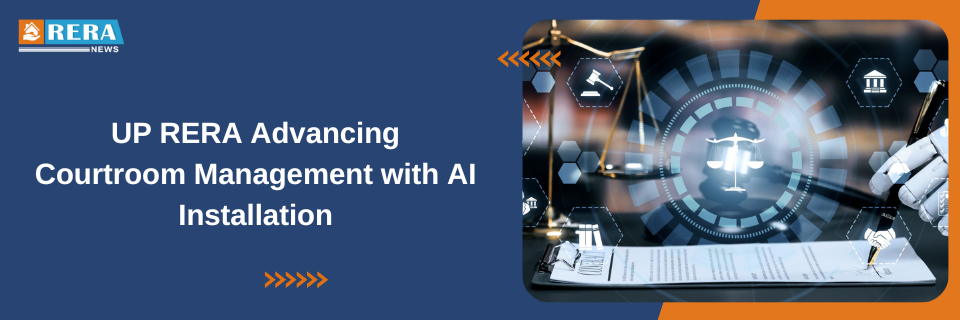
The Uttar Pradesh Real Estate Regulatory Authority (UP RERA) has issued a tender to invite agencies to assist in the implementation of artificial intelligence (AI) within their courtroom management systems. This move is part of the court's initiative to become 'smart.' Since the onset of the pandemic, UP RERA has been operating e-courts.
The objective of UP RERA is to leverage cutting-edge technologies such as AI, machine learning (ML), and natural language processing (NLP) to create an intelligent quasi-judicial stability team, known as a smart court. This system aims to enhance the Authority's to process complaints in a fair, efficient, and timely manner.
Artificial Intelligence (AI) leverages big data, machine learning, neural networks, pattern recognition, self-learning, predictive analytics, data science, and natural language processing to execute intricate tasks efficiently. This technological ability replaces the need for extensive human intelligence in these tasks, enabling seamless operations.
The COVID-19 pandemic has expedited the digitization of e-courts, leading to the emergence of virtual courts and the adoption of online dispute resolution procedures. Artificial Intelligence (AI) is anticipated to play a crucial role in enhancing the capabilities of these online platforms and systems.
The authorities at UP RERA plan to incorporate AI to facilitate smart complaint filing, intelligent case filtering and prioritization, as well as case tracking. This implementation is anticipated to expedite the overall process and minimize human intervention, leading to the creation of an automated system within the Real Estate Regulatory Authority.
Machine learning algorithms can be utilized to support real-time activities such as scheduling hearings, compiling cause lists, reviewing evidential materials, smart complaint filing, intelligent case filtering and prioritization, alerts or notifications, and case tracking. The development of AI technology will drive progress in three main system categories: supportive systems, function-based automation systems, and autonomous systems. These categories will witness significant advancements and benefits as AI continues to evolve and enhance its capabilities.
© 2023 Rera News. All rights reserved.